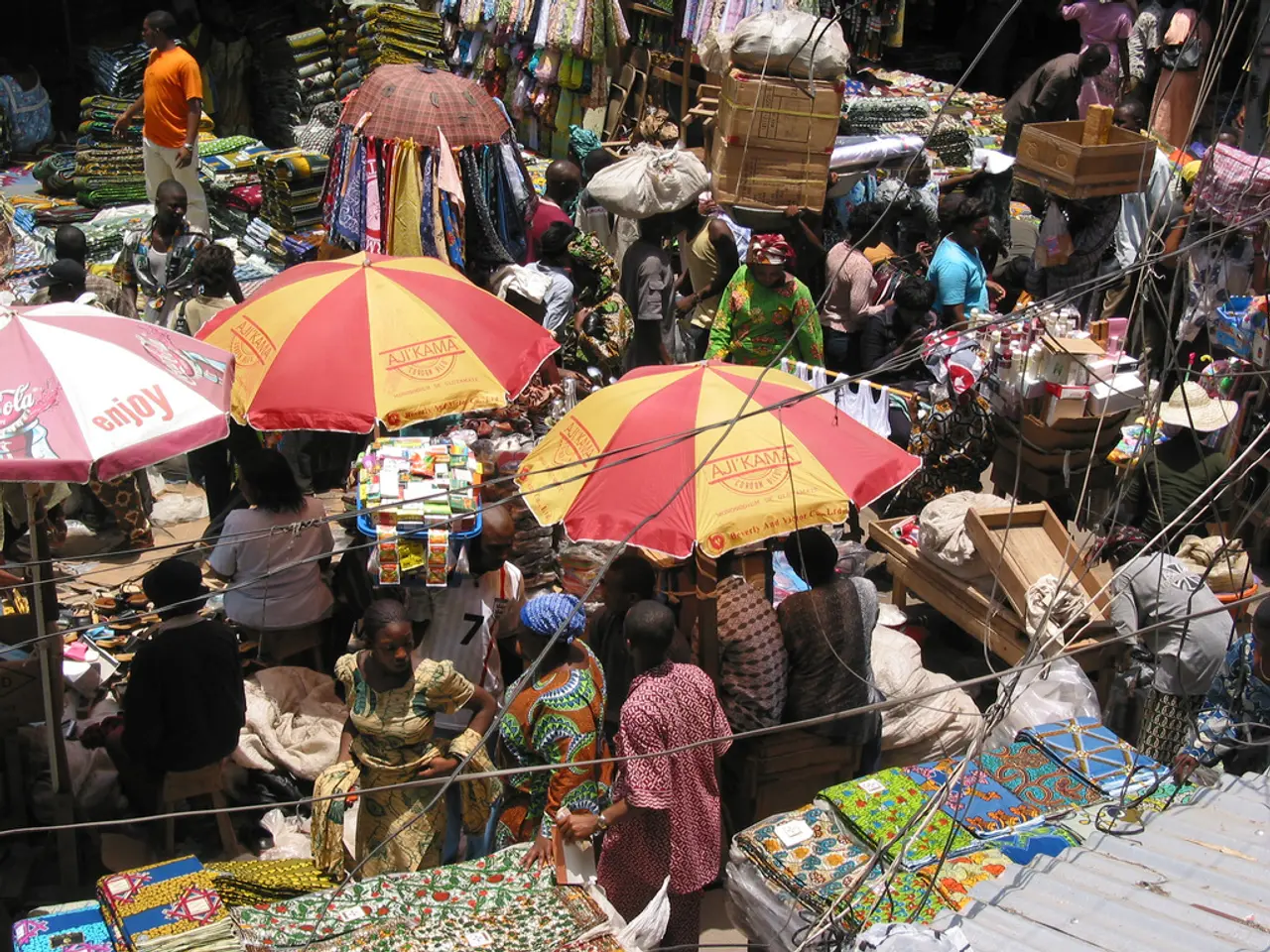Unregulated Economy: Definitions, Features, Advantages, and Disadvantages
In a free-market economy, individuals and businesses have the freedom to make economic decisions without coercion or restriction. This system, while promoting innovation and efficiency, is not without its flaws.
The Role of Financial Markets
Financial markets play a crucial role in free-market economies, facilitating financing needs and providing means for individuals and companies to exchange goods and services.
The Ideal Free Market
In an ideal free-market economy close to a pure one, the government's role is limited to enforcing property rights and prohibiting practices that inhibit competition, providing fair opportunities for all economic actors. Business owners enjoy the freedom to innovate and generate new ideas to meet consumer needs and make a profit.
Market Failures
However, real-world free market systems are rare due to various barriers such as price controls, subsidies, tariffs, and legal restrictions. These barriers can lead to market failures, where the market does not achieve efficient or equitable outcomes.
Common Examples of Market Failures
- Climate change and environmental degradation: Activities like fossil fuel burning and deforestation generate significant negative externalities—costs such as pollution and global warming that are not reflected in market prices. This leads to overproduction of harmful goods and under-protection of the environment, requiring government intervention to internalize these external costs.
- Healthcare markets: These often suffer from information asymmetry, where healthcare providers know more than consumers, combined with individuals’ inability to pay for necessary care. This results in insufficient provision of essential healthcare services, justifying public provision or regulation to ensure access and equity.
- Education: Because education generates positive externalities (e.g., higher productivity, reduced crime), the private sector tends to under-produce it. This leads to under-consumption relative to the social optimum, so governments often intervene by providing or subsidizing education.
- Public goods problems: Goods like national defense and law enforcement are non-excludable and non-rivalrous, meaning people can benefit without paying (free-riding). Free markets typically fail to provide optimal levels of such goods due to lack of incentives for private provision.
- Monopolies: When a single seller dominates, it can manipulate prices and output to its advantage, leading to inefficient allocation of resources and welfare loss. The absence of competition can also reduce innovation and choice in the market.
- Demerit goods: These are goods like alcohol, drugs, gambling, and sugary foods that are over-consumed because consumers ignore the broader social costs of their consumption, leading to negative externalities and partial market failure.
- Income and wealth inequality: Free markets can exacerbate disparities due to unequal bargaining power and market imperfections, which may require government intervention for redistribution and social safety nets.
- Economic crises: Periodic financial crises are evidence of market failures, often linked to insufficient regulation, information problems, and risky behavior by market participants.
- Shortages caused by supply-demand mismatches: For example, scarcity of essential commodities like onions due to suboptimal market structures or price mechanisms failing to clear the market efficiently.
These examples reflect common patterns where free markets do not achieve efficient or equitable outcomes, justifying government roles in regulation, provision, or correction of such failures.
Characteristics of a Free Market
- In a free market, market demand and supply determine prices, and market prices serve as signals for producers to change their production.
- Large companies may have an advantage over small producers due to access to capital and labor, potentially driving small producers out of business.
- The capitalist economy, practiced by most developed countries, is not a purely free market but is free because the private sector plays a significant role in the economy.
- In a free market, consumers drive choices by evaluating products and influencing prices through their decisions.
- Economic incentives in a free market encourage individuals to produce goods and services that people want and can buy, with money acting as an incentive for better production.
The Role of the Government
Minimal government intervention is a characteristic of a free market, with the government's role being limited to ensuring fair competition and protecting property rights. However, when market failures occur, the government may need to intervene to correct these issues and ensure a more equitable distribution of resources.
The Impact of a Free Market
The profit motive in a free-market economy may also be responsible for negative externalities that affect the global climate, such as air pollution and greenhouse gas effects. It may also lead to exploitative attitudes towards resources, compromising workers' safety, ignoring environmental standards, and ethical behavior.
In a free market, economic resources are primarily owned by individuals or companies in the private sector, contrasting to command economies where the government owns all resources. This can lead to wealth disparities and the potential for market manipulation if not properly regulated.
In conclusion, while free markets offer numerous benefits, they are not without their challenges. Balancing the need for government intervention with the benefits of a free market is a complex task, requiring careful consideration and ongoing adjustments to ensure a fair and equitable economy.
[1] Acemoglu, D., & Robinson, J. A. (2012). Why Nations Fail: The Origins of Power, Prosperity, and Poverty. Crown Publishing Group.
[2] Stiglitz, J. E. (2010). Freefall: America, Free Markets, and the Sinking of the World Economy. W. W. Norton & Company.
[3] Posner, R. A. (2003). Economic Analysis of Law (7th ed.). Aspen Publishers.
[4] North, D. C. (1990). Institutions, Institutional Change and Economic Performance. Cambridge University Press.
[5] Sen, A. (1981). Poverty and Famines: An Essay on Entitlement and Deprivation. Oxford University Press.
Financial markets, being a crucial part of free-market economies, facilitate the means for individuals and businesses to exchange goods and services through financing needs.
In an ideal free-market economy, business owners have the freedom to innovate and generate new ideas to meet consumer needs and make a profit, with the government's role limited to enforcing property rights and prohibiting practices that inhibit competition, providing fair opportunities for all economic actors.




